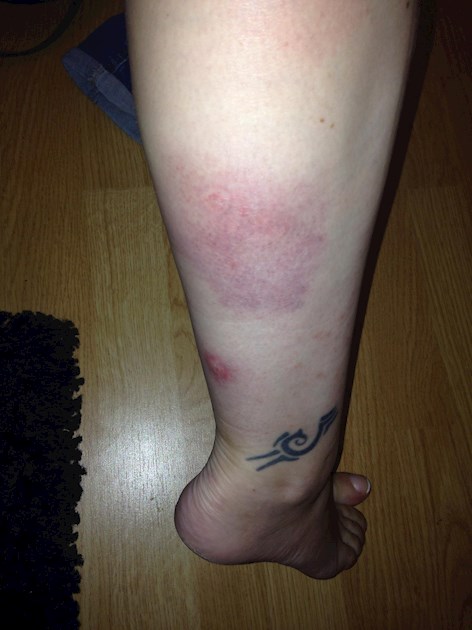Hello all and a happy new year! Just a little update on me- I was diagnosed with lupus at the milder end of the spectrum last October. My rheumatologist has said that while I have lupus specific antibodies, they are not crazy high and so it’s hard to label my condition as SLE. It’s more like MCTD with lupus features. Anyway I commenced on hydroxy and I am beginning to feel some benefits.
I am now thinking about the summer months. I’ve always come out in a rash in sunlight although I’m fortunate that I can avoid the rash if I wear a good SPF and regularly reapply. I wondered if hydroxy can reduce photosensitivity rashes? I’ve read mixed information on this, with some saying that hydroxy can actually make sun rashes worse.
My other question is in relation to insect bites. If I get bitten by a mosquito while on holiday it basically ruins the whole trip. I react really badly and end up with a huge swollen area that is hot and sore, and takes weeks to subside (see pic). Will hydroxy reduce these reactions at all?
I’d be really interested in other people’s experiences. Thanks 
